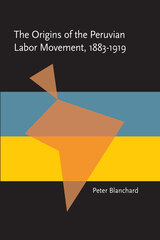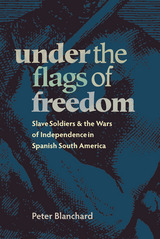

Beginning in October 1883 at the time of Treaty of Ancón terminating four years of warfare with Chile, Peru’s workers started a thirty-year effort to become an active and influential sector of society. They formed organizations, actively participated in the nation’s political life, engaged in industrial agitation—all revealing a growing class consciousness and an ability to compel both employers and governments to respond to their demands. Blanchard’s analysis and insights into the economic factors underlying Peru’s labor unrest also extends to labor developments and the modernization process throughout Latin America.

Much hedging over the slavery issue continued, however, even after the patriots came to power. The prospect of abolition threatened existing political, economic, and social structures, and the new leaders would not encroach upon what were still considered the property rights of powerful slave owners. The patriots attacked the institution of slavery in their rhetoric, yet maintained the status quo in the new nations. It was not until a generation later that slavery would be declared illegal in all of Spain's former mainland colonies.
Through extensive archival research, Blanchard assembles an accessible, comprehensive, and broadly based study to investigate this issue from the perspectives of Royalists, patriots, and slaves. He examines the wartime political, ideological, and social dynamics that led to slave recruitment, and the subsequent repercussions in the immediate postindependence era. Under the Flags of Freedom sheds new light on the vital contribution of slaves to the wars for Latin American independence, which, up until now, has been largely ignored in the histories and collective memories of these nations.
READERS
Browse our collection.
PUBLISHERS
See BiblioVault's publisher services.
STUDENT SERVICES
Files for college accessibility offices.
UChicago Accessibility Resources
home | accessibility | search | about | contact us
BiblioVault ® 2001 - 2024
The University of Chicago Press









